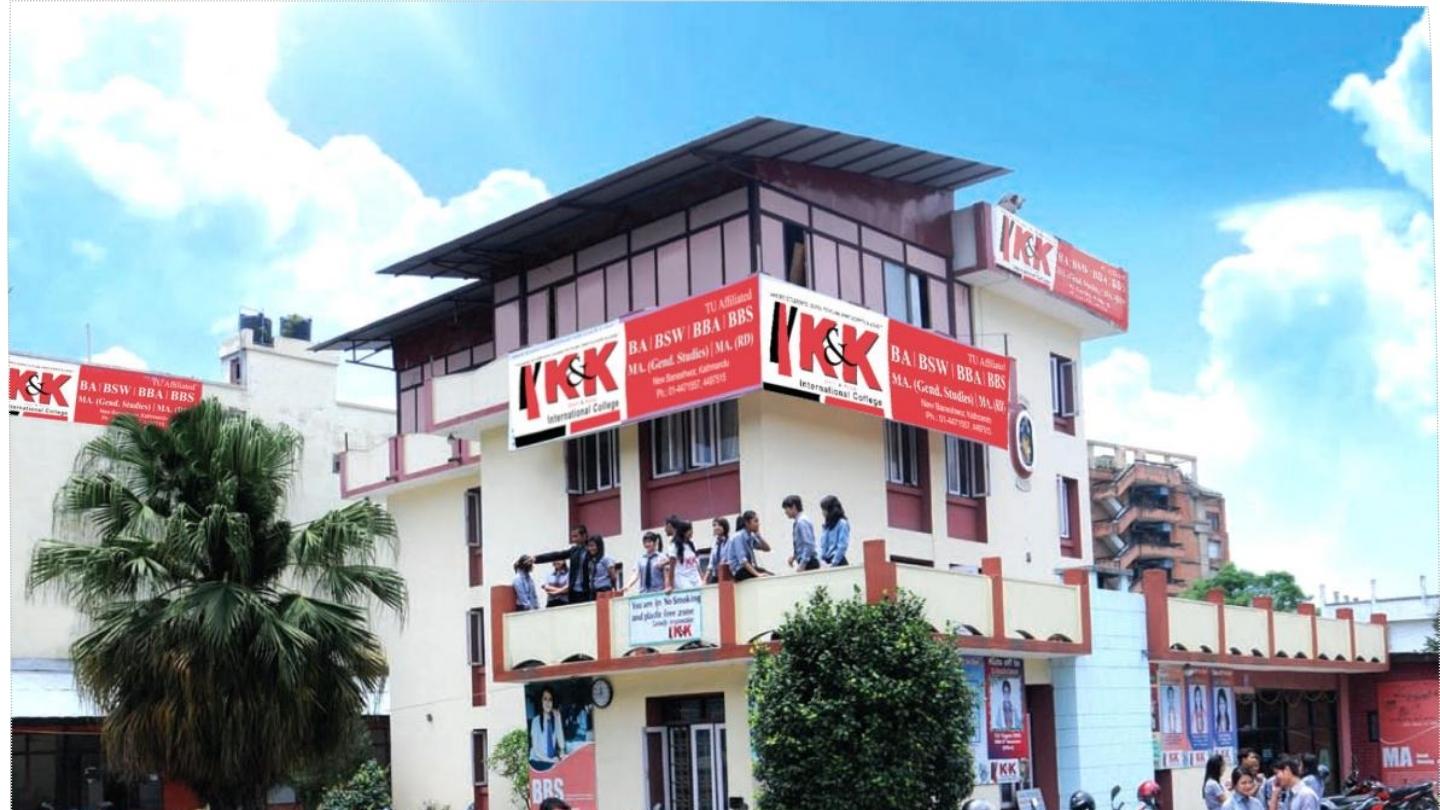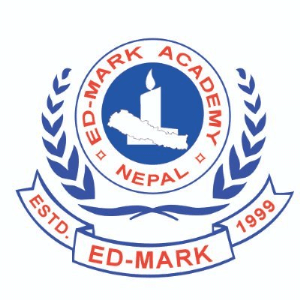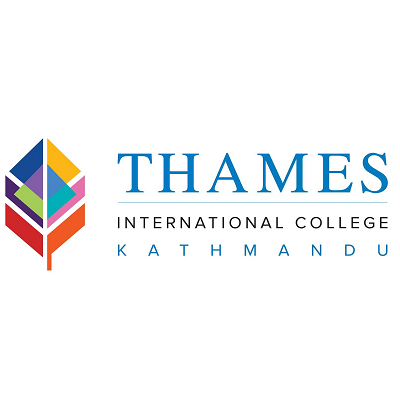Overview
BASW at K and K International College, New Baneshwor, Kathmandu
The Bachelor of Arts in Social Work (BASW) at K and K International College (K&K), New Baneshwor, Kathmandu, runs under Tribhuvan University’s Faculty of Humanities and Social Sciences. The four-year structure covers social work theory, ethics, research basics, and supervised field exposure suited to Nepal’s communities.
The college location opposite the International Convention Centre (BICC) supports daily commuters. Library access, computer labs, and scheduled classrooms help you manage readings, reports, and presentations on time.

Overview
This profile gives you clear, course-specific information before applying. The BASW at K&K follows TU rules for curriculum and evaluation. Learning moves from core ideas of social work to practical tasks such as field notes, community meeting minutes, brief case descriptions, and short research write-ups. Students learn to document activities accurately and communicate in plain language.
Highlights
-
Program length: Four academic years under Tribhuvan University
-
Affiliation: Faculty of Humanities and Social Sciences (FoHSS)
-
Academic focus: Social work theory and values, community practice, social policy, research basics, documentation
-
Learning mode: Classroom study with supervised field exposure and short applied tasks
-
college support: Library, computer lab, multimedia classrooms, clubs and sports in New Baneshwor (opposite BICC)
Curriculum Details
Teaching follows TU’s four-year BA framework. Coursework progresses from foundations to applied modules and ends with guided research and field-linked reporting.
Foundations of Social Work
Students study the history and values of social work, person-in-environment perspective, and ethics. Introductory assignments require short reflections on dignity, confidentiality, neutrality, and responsible communication. Class discussions connect concepts to everyday settings in Nepal.
Human Behavior and Social Environment
Modules explain development across the life span, family and group dynamics, and social institutions. Short tasks include mapping support systems, identifying risk and protective factors, and noting how context shapes options for service users.
Social Policy and Administration
Students read policy excerpts related to welfare, health, education, and local governance. Exercises involve summarizing a policy provision in one page and drafting a simple program note that links objectives to activities, timelines, and a budget outline.
Community Organization and Development
Coursework introduces community entry, group formation, meeting facilitation, and participation. Field exposure supports practice in preparing agendas, recording minutes, and documenting decisions. A participation checklist helps track who attends and who speaks.
Methods of Intervention
Basic methods cover casework, group work, and community work. Students practice interviews, observation, and record-keeping. Role plays help you prepare for first contacts, referrals, and follow-ups. Short reports record goals, actions taken, and next steps.
Research Basics and Statistics
Research tasks include formulating a question, drafting simple tools, collecting small data sets, and producing clean tables and charts. A short paper links question, method, and one key result. Attention stays on clarity and responsible data handling.
Fieldwork and Documentation
Supervised field exposure builds habits of punctuality, observation, and ethical conduct. Students learn to write dated entries, list contacts, and note key events without judgmental language. Guidance focuses on usable records that support evaluation and handovers.
Objectives
The BASW aims to help students:
-
Understand social work values, roles, and responsibilities in Nepal’s communities.
-
Apply basic methods—casework, group work, and community work—with appropriate records.
-
Analyze local problems using small data sets and clear reasoning.
-
Communicate through short memos, meeting minutes, and concise reports.
-
Follow ethical steps for confidentiality, consent, and citation.
Scope
Graduates take entry roles in NGOs, community-based organizations, schools, health outreach, and municipal programs. Typical tasks include mobilization, documentation, beneficiary follow-up, awareness activities, and basic monitoring support. Some students move to master’s degrees in social work, rural development, psychology, or public administration after gaining field experience.
Learning Outcomes
By graduation, students typically can:
-
Map stakeholders and write a focused problem statement.
-
Draft a small plan with activities, timelines, and a budget outline.
-
Collect field data and present it in clean tables and short charts.
-
Write clear minutes, referral notes, and brief updates for supervisors.
-
Present findings to peers in a five- to ten-minute talk with slides.
Skill Development Modules
Classwork builds reading, note-making, data handling, short writing, and public speaking. Instructors share a plan each term listing internal tasks and deadlines. Lab hours support charting and formatting; library sessions help with references and summaries.
Micro-checklist for steady progress
-
Weekly log: Record topic, example, and one question per class.
-
Field notes: Note date, location, people present, three key points, and next steps.
-
Data habit: Enter tallies into a spreadsheet table the same day and add one chart.
-
Writing drill: Produce a 250–400 word brief after each reading or field visit.
-
Speaking: Deliver one five-minute update per course before mid-term.
Teaching Methodology
Classes combine short explanations, examples, and group tasks. Internal evaluation may include attendance, quizzes, assignments, presentations, and a term paper or brief field report where assigned. The approach helps you move from definitions to applied outputs in small steps and prepares you for TU examinations.
Admission Requirements
-
Eligibility: Completion of grade 12 or equivalent from a board recognized by Tribhuvan University; documents must show subjects taken and grades or division.
-
Selection: K&K follows TU rules and may schedule a short screening or counseling session during intake.
-
Documents: Mark sheets and character certificates for grades 10, 11, and 12; recent photos; valid ID; and any forms announced for the intake cycle.
Before you apply
-
Collect records: Scan mark sheets, ID, and photos into one folder.
-
Track notices: Note submission deadlines and any screening dates.
-
Prepare a note: List two community topics you care about for discussion during counseling.
Career Opportunities
Early roles include community mobilizer, program assistant, outreach worker, enumerator, school social work aide under supervision, and monitoring support. Employers value attendance, reliable documentation, and respectful communication. Your field notes, minutes, and short reports become writing samples during recruitment.
Scholarships and Financial Aid
Scholarship notices are issued during admission. Categories can include merit and need-based support under published rules. Students should prepare citizenship or ID, academic records, and any supporting letters requested for screening. Deadlines follow the intake calendar, so timely submission helps.
Why Choose This Course?
Students who want a structured entry into people-focused work find BASW steady and clear. The curriculum links classroom topics to supervised field exposure and practical documents you can reuse during applications. The New Baneshwor college near BICC supports commuters. Library access, lab time, and scheduled classrooms help you finish readings, tables, and slide decks on time.
Conclusion
The BASW at K&K follows Tribhuvan University’s framework and focuses on usable skills. You learn core methods, practice ethical documentation, and produce short reports that show method and result. Consistent attendance and weekly planning help you finish the degree with records—tables, minutes, briefs, and presentations—that support both job applications and further study.
FAQ
What is the length of the BASW at K&K?
Four academic years under Tribhuvan University’s Faculty of Humanities and Social Sciences.
Does the program include supervised fieldwork?
Yes. Students complete field exposure with guidance and submit structured records.
Which skills matter most for early roles?
Reliable documentation, clear writing, respectful communication, and basic data handling.
What kind of entry roles are common?
Community mobilizer, program assistant, outreach worker, enumerator, school social work aide under supervision, and monitoring support.
Which facilities support study on college?
The library, computer lab, and scheduled classrooms in New Baneshwor support reading, charting, and presentations.






















